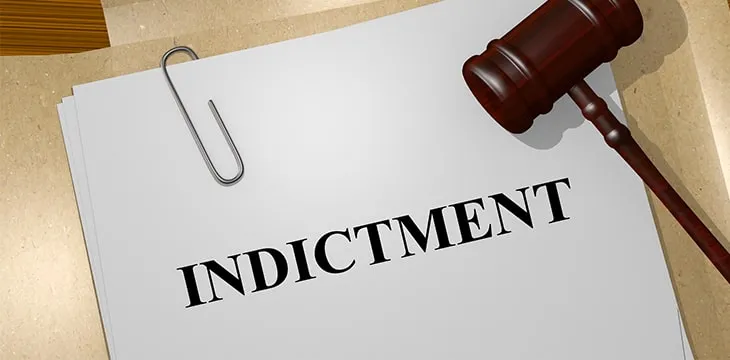|
Getting your Trinity Audio player ready...
|
South Korean digital asset exchange Bithumb is in the headlines for all the wrong reasons again this week. Prosecutors in Seoul have indicted former chairman of Bithumb Holdings Lee Jung-hoon on fraud charges over a $100 million business deal gone bad. Meanwhile, a former partner involved with plans to set up a subsidiary exchange in Thailand is suing Bithumb’s HK entities, claiming the company was never serious about setting up the new operations.
The cases offer a glimpse into an industry that has frequently turned empty promises and hype into billions of dollars, and the behind-the-scenes deals that drive exchanges key business decisions.
Lee, prosecutors allege, wanted the equivalent of US$100 million as a “contract fee” from Kim Byeong-gun, chairman of Korea’s BK Group. The fee was reportedly a payment for Lee’s efforts to aid Kim’s acquisition of Bithumb Holdings itself, partly using the proceeds from pre-sales and eventual listing of the BXA token.
They claim Lee never planned to actually list the token, using the promise and pre-listing sales of the token as a money grab. Kim quit the deal after becoming concerned at the amounts of money involved. BXA investors also sued Lee and Kim together, but South Korean authorities dropped charges against Kim and are saying he is also one of Lee’s victims.
Thailand civil suit
At the same time, Bithumb’s former partner in Thailand has launched a civil suit against Bithumb’s Hong Kong subsidiaries Bithumb Global Holdings (BGH) and GBEX, after Bithumb withdrew from plans to open a Thai partner exchange. The partner is also claiming Bithumb made empty promises about its plans to expand worldwide and used the hype to sell BXA tokens to investors. Once it decided not to list BXA on its platform, the company canceled plans for a Thai operation.
The plaintiff reportedly said the long time it was taking Seoul police to take action against those involved was a reason for launching the suit.
BXA, which stands for Blockchain Exchange Alliance, was an effort to create fiat/payment gateways for a global network of exchanges, plus other financial services. The BXA token itself launched in February 2019 for 30 cents each. Its price then followed a pattern all-too similar to other digital assets, falling sharply amid high volatility before flatlining around the middle of that year. It currently trades for around US$0.0012.
According to its website, “BXA is the controlling shareholder of Bithumb and operates a global payment network that will be available in more than 12 countries including, but not limited to, U.S.A., Japan, U.K., Canada, Australia, New Zealand, Singapore, South Korea, Hong Kong, Thailand, Mexico and Peru.”
It also adds: “Compliance is the key criterion of BXA. BXA sets the gold standard for regulatory compliance and builds a solid foundation for alliance members to establish local financial services entities around the world.”
Links to BXA’s white paper and other materials on the site appear to no longer work, and the project description contains very little detail otherwise.
BK Group, the BXA token issuer, has an interesting background for a digital asset operator: its initial stand for “Beauty Korea” and began its life operating a chain of cosmetic surgery clinics in Seoul before expanding into other businesses.
The exchange and token business
These cases reveal more about how digital asset exchanges earn a lot of their money—by charging exorbitant “listing fees” or other similar items that milk millions of dollars from so-called blockchain or token projects, or by promising partnerships that may or may not be serious.
Most cryptocoins and digital tokens are essentially worthless and lack real-world utility, but a listing on a major exchange can be a license to print money based on traders’ speculation. If the project developers and/or exchange operators can raise enough hype to pump an asset’s price for long enough, large holders can cash out with hundreds or thousands of times their original investments. Because of this, many project leaders will bite the bullet and pay the fee, hoping it’ll pay for itself and more.
Likewise, potential pre-sale investors in a token are enticed mainly by the prospect of an exchange listing. Without a listing, digital assets usually fail to achieve even speculative value. The whole affair raises some serious questions not only about individual blockchain projects, but also the industry itself: what exactly is it selling, and what is the end goal? Too often, events like the ones above detail the true nature of digital asset trading: lots of hype, but little substance or real value.
Watch: CoinGeek Zurich panel, The Future of Trading & Digital Assets

 08-25-2025
08-25-2025 





